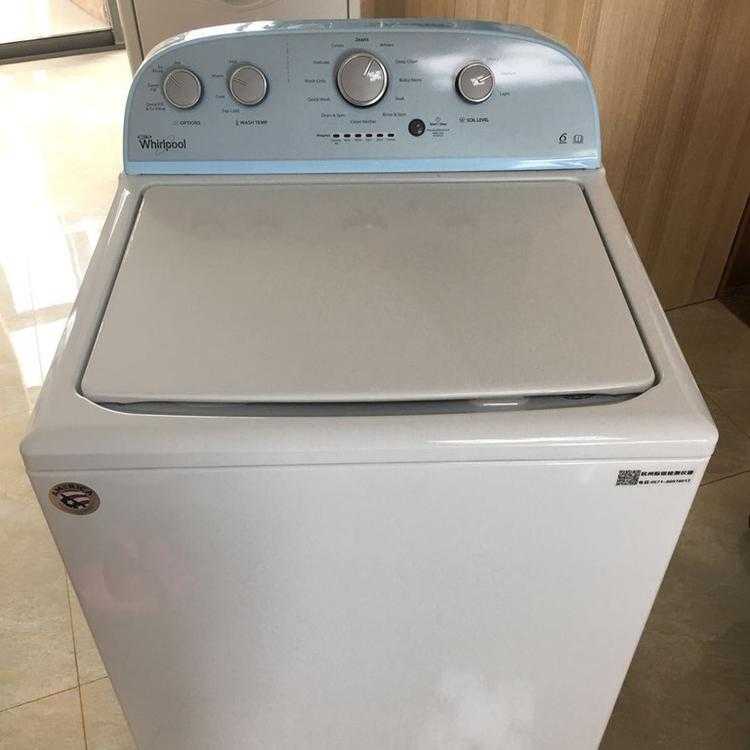Site: Home > News and events 
Basic knowledge of textile and clothing inspection and testing
The textile and clothing industry is closely related to our daily lives. Testing on textiles also includes many items. With the rapid economic development, testing is constantly updated. QINSUN will show you these necessary tests.
1. shrink test (Whirlpool 3LWTW4815FW)
1) Purpose: To determine the dimensional stability of woven or knitted fabrics after repeated washing in a household washing machine.
2) Principle: Before washing, mark the size on the sample, and judge the size change of the sample by measuring the change of the mark after washing.
3) Process: Choose the washing and drying method, cycle and drying times according to the type of cloth and customer requirements, add standard detergent and appropriate water level to start washing and drying, and finally get the test result.


2. Physical performance test
1) Main items:
Yarn count, density, weight, tensile strength, tear strength, seam slippage, seam strength, burst strength, wear resistance, anti-pilling resistance, etc.
2) Specific instructions:
Yarn count: refers to the thickness of the yarn, most of which are currently used in English counts, expressed by Ne, which is defined as a multiple of 840 yards of the length rate of a 1 pound cotton yarn with a regular moisture regain of 9.89%.
Density: The number of yarns in each INCH.
Gram weight: the ounce weight of cloth per square yard or the gram weight of cloth per square meter.
Tensile strength: The force used when a certain size of fabric is stretched to break at a constant rate by a tensile strength machine is the measured tensile strength. Tensile strength tests include grab sample method and strip sample method. Specific test methods can be selected according to different test standards and customer requirements.
Tear strength: clamp a sample of a certain size on the tear strength tester, cut a cut in the middle to determine the direction of tearing. The tear strength tester uses the pendulum drop method to tear the sample from the cut. The measured tear strength.
Seam slip: After folding a certain size of fabric, stitch it in the width direction and cut it at a certain distance from the suture. Use a tensile strength meter to stretch it to a certain stitch opening at a constant rate. The opening distance when reaching a certain strong force is the seam slippage we measured. There are two methods for seam slippage: fixed opening test and fixed opening test. When testing, the specific test method is selected according to different test standards and customer requirements. Seam slip is generally only used for testing woven fabrics.
Seam strength: Same as the seam slippage, after folding a certain size of fabric, stitch it in the width direction, and cut it at a certain distance from the suture. Use a tensile strength meter to stretch at a constant rate to break the suture. The force used is the measured seam strength. The seam strength can be carried out at the same time as the seam slippage, and it is generally only used for the test of woven fabrics.
Bursting strength: Under certain conditions, an expansive expansion force is applied to a flat fabric at a suitable angle until it ruptures. This force is the bursting strength.
Wear resistance: under a known pressure, the sample mounted on the sample holder and the standard friction cloth will rub each other in a certain track under a certain pressure until the fabric has the number of broken yarns or holes required by the customer , Record the number of friction at the end of the experiment, which is the measured wear resistance value.
Anti-pilling property: Roll the fabric under specific conditions and rub it for a certain period of time, and watch its surface fluff and pilling. Pilling refers to the pom-poms formed by tangled fibers standing on the surface of the fabric. Fuzzing refers to the fiber roughness and (or) fiber fuzzing on the surface of the fabric, resulting in a change in the appearance of the fabric. The fuzzing and pilling are evaluated by rating sample photos or original comparison.
For more information, please visit us at:
https://www.qinsun-lab.com/index.html
For more information, please visit us at:
https://www.qinsun-lab.com/index.html
2021-04-16 19:02
